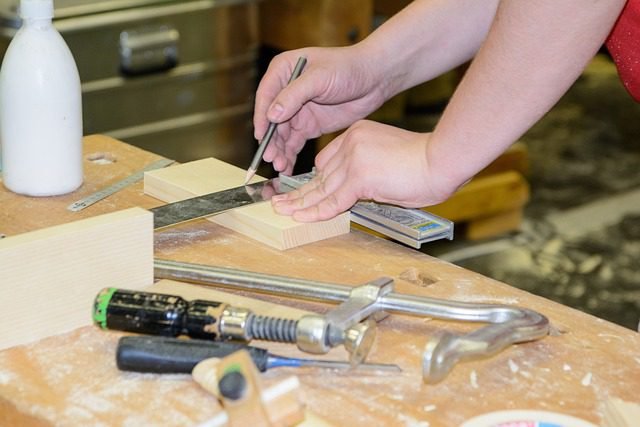Make Money From Woodworking
Making Money From Your Woodworking Business.
Starting the journey to turn your part-time woodworking hobby into a thriving side business requires a thorough understanding of your abilities and the equipment at your disposal.
Knowing what you can create most effectively with your current tools is critical for increasing productivity and profitability while avoiding unnecessary debt. This evaluation establishes a foundation for your business, allowing you to make informed decisions based on financial health and sustainability.
Make a detailed inventory of all the equipment and tools you use for woodworking before you start. Look over each item’s capabilities and state, noting any shortcomings or unique qualities.
The basis for finding products that enhance the equipment you already have is this inventory.
For instance, if you have a top-notch lathe, you could focus on turning furniture legs, bowls, and pens.
On the other hand, you might specialise in fine furniture and intricate joinery if your toolkit contains precision saws and sanders.
Think about the kinds of woodworking projects you enjoy and are best at. Your zeal and specialised knowledge will enhance the calibre of your goods and add to the pleasure of conducting business.
Align these strengths with the capabilities of your tools to identify a variety of products that can be produced efficiently.
This alignment not only ensures high-quality results, but it also optimises production time, which is critical for a profitable side business.
Additionally, investigate market demand for various woodworking products. Identifying niche markets or trends can assist you in selecting products with a higher profit margin.
Custom furniture, one-of-a-kind home decor items, and personalised gifts, for example, are frequently priced higher.
Matching market needs with your capabilities and equipment will allow you to carve out a profitable niche without requiring a large upfront investment in new tools.
The first step in turning your hobby into a profitable side business is to gain a thorough understanding of your woodworking abilities and equipment.
By aligning your skills, tools, and market demand, you can put your business on a solid financial footing and position it for success and growth.
Identifying Profitable Woodworking Products That You Can Make.
Once you’ve evaluated your abilities, you must determine which woodworking products are the most profitable.
Perform market research and analysis to ascertain the most well-liked and best-selling woodworking products.
Look at what your community has historically found popular and what is currently in high demand locally. You can meet customer demand and boost profits by focusing on the right products, which this analysis will help you identify.
Start by looking into different online marketplaces; Etsy, eBay, and Amazon are great places to find out what kinds of things people are interested in right now. Look for woodworking products that consistently receive high ratings and reviews.
Custom furniture, decorative home accessories, and personalised gifts are popular and can command higher prices due to their unique and handcrafted nature. Being aware of the latest seasonal patterns and holidays is another essential component. For instance, during their respective seasons, wooden Christmas ornaments, Easter decorations, and Halloween items can all result in sizable sales.
By matching these periods with your product offerings, you can profit from rising customer demand.
A few weekends spent at craft fairs, farmer’s markets, and other community gatherings can provide you with a wealth of information about what local consumers are interested in purchasing.
Direct feedback from interactions with potential clients can help you adjust your product offering to better meet their needs.
Don’t undervalue the significance of social media and online discussion boards for do-it-yourself and woodworking projects.
Platforms such as Reddit, Tumblr, Minds, Linkedin, Quora, Facebook, Instagram, Pinterest, and specialised woodworking groups can reveal new trends and designs.
Staying active in these communities allows you to stay on top of what is trending and ensures that your products remain relevant and appealing.
To summarise, effectively identifying profitable woodworking products necessitates a combination of market research, understanding local demand, and staying current on seasonal and emerging trends.
By focusing on these areas, you can strategically choose products that not only demonstrate your abilities but also meet the needs and desires of your target audience, maximising your profits.
Do Woodwork Product Market Research and Analysis.
Conducting extensive market research is an essential first step in turning your part-time woodworking hobby into a thriving and profitable side hustle.
Understanding the demand for different woodworking products in your area requires a multifaceted approach that includes both online tools and traditional methods.
To identify popular woodworking items, start by looking through online platforms like Google Trends, Etsy, and Amazon.
These tools can provide valuable insights into popular products and consumer preferences at a larger scale.
Furthermore, reviewing customer feedback and ratings on these platforms can help you understand what features make certain products more appealing. Surveys are another reliable way to assess local demand. Create and send surveys via social media, community forums, and email newsletters.
Asking specific questions about potential customers’ preferences, price points, and purchasing behaviour will help you understand what the local market is looking for. Providing a modest incentive, like a coupon off your first purchase, can increase involvement and yield more thorough data.
Analysing the regional market is equally crucial. To find out what kinds of woodworking products are currently on the market and at what price points, check out your local craft fairs, farmers’ markets, and speciality shops.
Attending these events and interacting with vendors and customers can give you firsthand knowledge of consumer preferences and market trends.
You can find opportunities for differentiation and market gaps by analysing the offerings of your competitors.
Choose which products to produce based on data-driven decisions, gathered from these diverse sources.
Knowing the market in your area will help you position your products strategically and offer you a competitive edge.
By tailoring your woodworking creations to consumer preferences and market demands, you can increase the profitability and sustainability of your side business.
Effectively Market Your Woodworking Business.
Effective marketing is critical to the success of your woodworking business. To reach a larger audience and attract potential customers, it is critical to investigate both online and offline marketing strategies.
A comprehensive marketing strategy should include social media, local advertising, craft fairs, and word-of-mouth marketing.
Identifying the best marketing strategies for your unique situation will allow you to maximise your efforts and achieve the best results.
Social Media Platforms.
Reddit, Tumblr, Linkedin, Quora, Minds, Facebook, Instagram, and Pinterest are all effective ways to promote your woodworking creations.
By sharing high-quality images, behind-the-scenes content, and engaging posts, you can cultivate a loyal following and generate interest in your products.
Using hashtags related to woodworking and your location can help increase visibility and attract potential customers.
Local Advertising Of Your Woodwork Business.
Local advertising is another great way to promote your woodworking business.
Consider running advertisements in local newspapers, community bulletin boards, and business directories.
Working with local businesses to display your products can also help you gain visibility and attract customers who prefer to shop locally.
Craft Fairs.
You can demonstrate your woodworking abilities and make connections with potential clients by taking part in craft fairs and artisan markets.
These events give you the chance to speak with buyers face-to-face, get feedback right away, and establish a reputation in the neighbourhood.
Furthermore, providing business cards and brochures can aid prospective clients in remembering your company long after the event.
Word-of-Mouth Promotion.
Word-of-mouth advertising is one of the most effective and cost-effective marketing strategies.
Encourage satisfied customers to share their positive experiences with their friends and family.
Offering referral discounts or incentives can encourage customers to spread the word about your woodworking business.
Top 10 Achievable Woodworking Marketing Strategies.
1. Create a Website showcasing your portfolio.
2. Utilize social media to share your work and engage with followers.
3. Invest in local advertising through newspapers and business directories.
4. Participate in craft fairs and artisan markets.
5. Encourage word-of-mouth promotion from satisfied customers.
6. Offer referral discounts to incentivize customer recommendations.
7. Collaborate with local businesses to display your products.
8. Create and distribute business cards and brochures.
9. Start a woodworking blog to share tips and showcase your expertise.
10. Host workshops to engage with the community and attract customers.
Implementing these marketing strategies will help you promote your woodworking business, reach a larger audience, and attract potential customers.
Developing an Online Presence For Your Woodworking Business.
Having a reasonable > substantial online presence is critical for any business, including your part-time woodworking hobby turned side gig.
The first step is to create a Google Business profile. This profile will function as your company’s online storefront, providing detailed information about your woodworking products and pricing.
Make sure you provide accurate and complete information, such as your business hours, contact information, and high-quality images of your work.
This will not only boost your credibility, but also increase your visibility in local search results.
With free tools like Google Sites, you can make a simple website. This user-friendly platform lets you showcase your woodworking projects, client endorsements, and even a blog area where you can post updates and advice.
A well-structured website can act as a portfolio, making it simple for prospective clients to view your work and place orders.
You might want to think about making an investment in a professional website as your woodworking business expands and achieves financial stability.
Greater flexibility, improved SEO optimisation and a more professional look are all features of a custom-designed website that may draw in more visitors. Advanced features like an online store, appointment scheduling and customer reviews can make for a more enjoyable shopping experience.
Regularly posting content on various social media platforms is more effective, with a few photos and videos of completed projects or behind-the-scenes looks at your woodworking process, engaging your audience and building a community around your brand.
Utilizing these digital tools effectively will help transform your woodworking hobby into a thriving and profitable side business.
Managing Costs and Your Woodwork Product Pricing Strategies.
To ensure that your woodworking business is profitable, you must implement effective cost management and pricing strategies. Begin by calculating the costs associated with producing each item.
This includes the materials used, labour costs, and overhead expenses like utilities and workshop upkeep.
Accurately estimating these costs will enable you to set realistic financial goals and avoid unexpected expenses.
After you’ve identified these costs, create a few items and calculate the average cost per product.
This step is critical because it establishes a benchmark for your pricing strategy.
You must determine a selling price that both makes a profit and covers the cost of materials and labour, for instance, if the total cost of creating a handcrafted table is $150.
Consider market demand and competitive pricing when creating your pricing plan. Examine related products on the market to learn about the pricing range and identify markets for your offerings.
Maintaining healthy profit margins while providing competitive pricing requires careful consideration.
Setting your prices too high or too low can have the opposite effect of increasing sales and decreasing perceived value for your products.
Cost management also includes keeping an eye on things and making adjustments as needed. Material costs can change, so keep an eye on them and modify your prices accordingly.
Review your production processes on a regular basis to identify inefficiencies or areas where you can save money without sacrificing quality.
Implementing cost-cutting measures, such as bulk purchasing materials or optimising labour efficiency, can have a significant impact on your profits.
Maintaining detailed financial records is also necessary for effective cost management. Use accounting software to keep track of your expenses, revenue, and profit margins.
This will give you a clear picture of your company’s financial situation and allow you to make informed decisions.
Managing costs and developing a strong pricing strategy are critical steps in turning your woodworking hobby into a profitable side business.
You can ensure your woodworking venture’s long-term profitability and success by carefully calculating production costs, researching market trends, and continuously monitoring financial performance.
Building A Customer Base Is Very Worthwhile.
Developing a loyal customer base is critical to the long-term success of your woodworking business. This loyalty is built on excellent customer service and high-quality products.
Ensuring that your products meet or exceed customer expectations will help your woodworking business build a strong reputation, attracting new customers and retaining existing ones.
Engage with your customers through various channels, including social media, email newsletters, and community events.
Sending out newsletters to your customers via email once a week or once a month is another efficient way to inform them about upcoming events, new products, and special offers.
Campaigns for email marketing that are successful can improve client relations and encourage recurring business.
All you have to do is take care not to appear “spammy,” as this will cause recipients to block your email address.
Attending community events provides a real chance to meet new clients. Attend local craft fairs, farmers’ markets, and other community events to advertise your woodworking business.
These gatherings offer a special chance to speak with clients directly, respond to their enquiries, and build relationships that may result in enduring loyalty. Encourage satisfied customers to leave feedback on your website, social media pages, and other relevant review platforms.
Positive reviews can have a significant impact on potential customers’ purchasing decisions.
Consider implementing a referral program that rewards customers for referring their friends and family to your business.
Word-of-mouth recommendations have great power and can greatly expand your clientele.
Developing a solid rapport with your clients is crucial to encouraging positive word-of-mouth recommendations and repeat business.
Long-term success of your woodworking business can be sustained by building a devoted customer base through engaging through multiple channels, providing high-quality products and exceptional customer service, and promoting customer advocacy.
As your woodworking hobby turns into a successful business, scaling up your operations is a crucial next step.
Purchasing new equipment is one of the main factors to take into account. Modern equipment not only increases the accuracy and calibre of your output but also greatly increases production efficiency.
Upgrading from manual tools to automated systems, for example, can reduce production time and allow you to handle larger orders, allowing you to meet rising demand more effectively.
Hiring additional staff can be critical in scaling your woodworking business, provided you have enough woodshop space and can afford it.
Skilled workers bring a wide range of expertise, allowing you to broaden your product offerings and improve craftsmanship.
Delegating some tasks can free up your time, allowing you to concentrate on strategic planning and business development.
When hiring new employees, look for people who share your passion for woodworking and share your company’s values, as this synergy can lead to a collaborative and productive work environment.
Exploring new markets is another critical component of growing your business. Conduct extensive market research to identify possible niches and consumer trends.
Expanding your reach to online platforms can also help. Creating an e-commerce website or utilising online marketplaces can expose your products to a larger audience, expanding your customer base and sales revenue.
Creating a strong online presence through social media and digital marketing can help you increase brand visibility and attract new customers.
Continuously evaluating your company’s performance is critical for long-term growth. Regularly assess your operations to identify areas for improvement and implement efficiency-enhancing strategies. This could involve optimising your supply chain, implementing lean manufacturing principles, or using business management software to streamline processes.
Staying proactive and adaptable allows you to better navigate challenges and capitalise on opportunities, resulting in long-term success.
Finally, scaling your woodworking business entails making strategic investments, expanding your workforce, and exploring new markets.
By focusing on these key areas, you can increase production capacity, meet rising demand, and boost profitability, transforming your part-time hobby into a profitable side hustle.

Develop a plan for your woodworking business
Your business plan based on your woodworking talent may rely primarily on your skills and passion, but you will require more than just a good personality and work ethic. There’s no point ignoring the fact that you’ll be competing against a very competitive market from day one, and there’s no telling how difficult it will be to make a good living from your craft.
I was recently shocked to learn how many woodworking businesses have failed in the last 2-3 years, and it really emphasises how important it is for new Woodworking Businesses to understand how competitive your area of specialisation is and how difficult it could potentially be over the first 6 to 12 months.
Lower profit margins, primarily as a result of falling prices, are one of the most pressing issues confronting all woodworking businesses today. Many manufacturers have entered the woodworking industry and are going hard at it, flooding the market and causing the average price of wood products to fall significantly and reducing the profitability of woodworking in general. On top of that, there is a global lumber shortage, which is causing a significant increase in the cost of raw materials.
However, the home-based woodworker has a lot of freedom; you can make whatever you want. You don’t have to limit yourself to only making a few specific products; the home woodworker simply needs to conduct research and identify the least commonly available types of products that appear to be very worthwhile making.
To avoid overextending yourself, limit your production to only a few products in which you have complete confidence, manufacture them with high quality, and then market them effectively or hire someone to do so.
I’d also suggest researching the eight wastes of lean manufacturing; you’d be surprised how applicable they can be to a home-based business. When you first begin, you must have a well-thought-out plan or strategy in place. For a variety of reasons, having a clear and distinct plan is critical to your future success if you want to start a woodworking business. Set clear and precise strategies for producing high-quality items with the least amount of waste.
These strategies could include measuring properly every time and twice before cutting, cutting carefully and without errors, maintaining all tools and equipment to high standards, always checking for square, using the right tool for the right job in the right way, and finally, proper storage and handling of base materials and finished products.
A marketing strategy can and will assist you in making the most of any opportunities that present themselves, as well as identifying any unusual or difficult-to-foresee factors that may impede or set you back.
Get all of your licences in order before you begin, and check with your local council and possibly your state government to see if you can run a woodworking business from your home at your specific address. There may be provisions for you to do so if you meet certain criteria, and I imagine noise pollution would be a big issue here, so expect to spend some money on sound proofing of your home workshop before you get the big green tick from the Authorities.
You have no idea whether you’ll succeed or fail, so minimise the harm any threats you can think of could possibly do, how would they affect your success, family finances, and happiness? Get all of your planning done now, before you get too busy.
After a while, you’ll have enough on your plate with the usual running costs, so having a few dollars set aside for a rainy day could come in handy. In your spare time, do everything you can to build up what could be your sales network; you need a large enough audience to support your business today and, ideally, where you want to be in a year. You’ll feel a lot more confident knowing that the people there are interested in what you’ll be producing.
Take out adequate insurance, and if you’re going to have customers come into your home woodshop, you’ll need to be protected against them slipping and injuring themselves (public liability). If you’re going to have some people working for you (workers compensation), you should also think about ‘bad times’ insurance (income protection). All of these insurances are in addition to the comprehensive insurance you will need to put in place to cover the replacement costs of everything (fire, theft, flood, tornado, cyclone, and so on). Make sure it covers all possibilities that could take everything away from you in an instant.
Get a good certified accountant; he/she should be able to help you with the hundreds of reasons why; this is one of the top three things to do in my opinion. Once you’ve been at it for a few months and have established a consistent routine, try to calculate how long it will take you to break even in terms of your start-up costs plus any other unforeseen overhead costs you’ve incurred thus far. This will provide you with a benchmark against which to measure your progress, and as you may have heard, what gets measured gets managed.
Your woodworking knowledge is worth money

Your knowledge and expertise can assist you in transforming your woodworking hobby into a thriving multi-discipline business, but you are not restricted to only creating and selling Woodwork or Wood Artistry Products.
Indeed, you may be able to start charging for your woodworking abilities. You’re probably more knowledgeable about woodworking than you realise. If you’ve been doing it on a regular basis and for a long time, and are knowledgeable about most aspects of woodworking, you’ll have a lot of information to share about setting up a Woodshop from scratch.
Even if you doubt yourself, I’m sure if you sat back and thought about it, you’d agree on how much woodworking expertise you do have. Your knowledge will be extremely valuable to someone who is just getting started with woodworking.
As you might expect, they are going through a rapid learning curve and are probably struggling to figure out what are the priority items for getting set-up and what should happen in what order.
They will require assistance in a variety of areas; your experience will be valuable to them, which is why you may be in the box seat to begin charging for your expertise. Consider offering online, phone, and in-person support and advice as part of your consulting services.
If you’ve ever used a search engine to look for both woodwork and consultants, you know how time-consuming it is to sift through a slew of advertisements and related results. It takes a lot of time and effort to open hundreds of links and scan through what they have to offer, only to be bombarded with information that was never intended to help you, but rather to get you to spend money.
For a new Woodworker, being spared of all the nonsense and being able to get extremely useful advice from someone who has actually experienced everything that they have questions about is worth a few dollars, and you’ll most likely save them a lot of money.
So turn your love of woodworking into a collection of products or services and increase your opportunities to earn more money.
You must be open to constructive criticism and all sorts of ideas.

Do you think you should change your current strategy? It’s difficult to be in this situation, especially when you know you’ve done everything possible to make it work. Will you be open to sound advice? Perhaps you’re not producing the right items to maximise profits. Have you ever considered where you should market your products? Who are your wood products aimed at? There are a few tricks and tips for re-inventing and profiting from a woodworking business, especially if you run a home-based woodworking business.
You’ll be relieved to learn that it’s not all doom and gloom. Re-inventing yourself as a home-based woodwork business will not take as much time, money, or effort as you may believe. You must learn about the business of woodworking in general, as well as what you can do better in terms of quality and waste elimination. Produce and sell with maximum efficiency, lowest overhead, and highest profits. With the right assistance, you can avoid putting your investment at risk and incurring losses.
Make sure to learn the best marketing methods for you and your business, right down to the words you should use when advertising your products. You may benefit greatly from learning about the more profitable crafts to make and sell; this may turn out to be very different from what you originally thought. The words you use and how you use them can have an impact on whether or not your customers return. There are also some pointers on where to get good deals on tools and equipment. Develop your skills further, improve product quality, learn sales skills, create a strong and welcoming online presence, and discover the difference.
Peaks and troughs in our gross and net earnings occur throughout the year and are experienced by all types of businesses. I don’t believe that everything in our lives moves in straight lines, so why should our business results be any different? Understanding the underlying causes of both uptrends and downtrends, the former of which you want to maintain and the latter of which you want to avoid, is critical. We will undoubtedly spend more time analysing the events that led up to the ‘troughs,’ but there is something we can do that I believe is far more valuable than any information we can learn from this analysis.
Spending some time developing a side business is not a silly idea

There is a way for you to make money online as a side business, and it basically involves assisting other companies in selling their products or services online and then receiving a commission for doing so. This type of side business is known as ‘Affiliate Marketing,’ and it has enabled many people to have year-round financial bliss, and you’d be surprised how many people end up making their side business their only business after a few years.
It simply requires setting aside some time each day. The ‘why’s’ and ‘what’s’ are the biggest threats to this type of side business.
What are the rules of affiliate marketing, and why are they in place?
Why should anyone care about whatever strategy you use to enable affiliate sales of these products?
Why should someone buy this item from you?
What is it about you that makes people feel at ease reading what you have to say and potentially taking the next step?
What is the significance of this item or product to the world?
What does having it add to my personal equation?
Your side business, like anything else in business, will necessitate proper planning, a balanced approach, and your sincerity.
Contact Us

We're Ready, Let's Talk.
Contact Info
Address
PO Box 784, Muswellbrook, NSW, Australia, 2333
Email Us
admin@glzwoodw.biz
Call Us
0448 687 451
